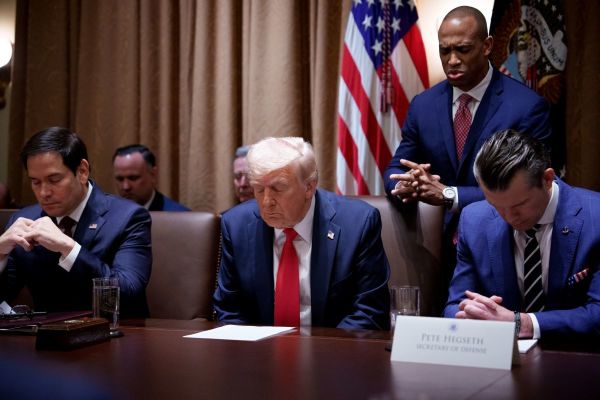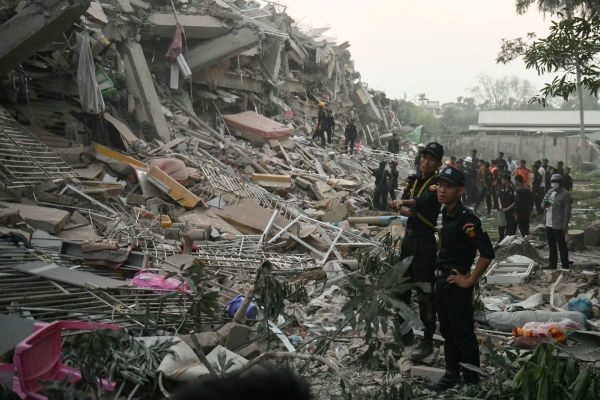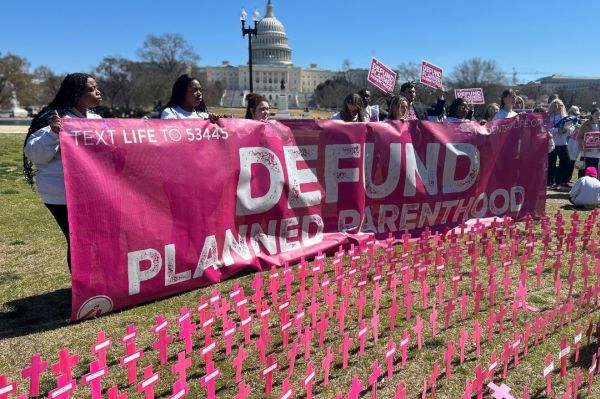Pakistan Christians Nervous about Sharia Law Enforcement
Christians in Pakistan voiced serious concerns about government allowing Islamic laws to be enforced in certain terrorist prone areas, noting that while not many Christians directly live in the affected areas there are thousands that live nearby.
"We are very much concerned about these developments. It does not augur well for us," said Victor Azariah, general secretary of the National Council of Churches of Pakistan, according to Ecumenical News International.
Sharia law, or Islamic law, will be enacted in Malakand region in the North West Frontier Province. Azariah notes that hundreds of thousands of Christians live in the North West Frontier Province and they now feel threatened by the government's agreement with Islamic leaders to allow Sharia law to dominate in the terrorist hotbed.
Last week, the chief minister of the North West Frontier Province had agreed with local Muslim leaders that have intimate ties to terrorist organizations such as the Taliban and Al Qaeda to allow Sharia law to be enacted in the Malakand region in exchange for a ceasefire on the part of extremist fighters.
There has been a marked increase in extremist activity and acts in the Northwest Frontier Province in recent months.
But human rights groups, including the Human Rights Commission of Pakistan, are criticizing the enforcement of Sharia laws "with the absence of any guarantees against transgression of the constitution and the people's basic rights." The group says such an agreement would pose a grave threat to basic law and fundamental rights, according to a statement.
The U.S. Commission on International Religious Freedom has also denounced Pakistan's plan to enact a Sharia system in the NWFP.
"This deal is being brokered with Taliban-associated extremists who consistently demonstrate utter disregard for human life and the essential freedoms sanctioned by international human rights mechanisms," said Commission Chair Felice D. Gaer, in a statement Wednesday.
"Granting power to these individuals' interpretations of sharia could easily result in further human rights abuses and religious freedom restrictions," she added. "The Commission calls on the U.S. State Department to communicate that the protection of human rights in Swat Valley and throughout Pakistan is a top priority of the United States,"
Following the spike in violence in the Swat Valley (located in Malakand region) in 2003, Taliban-linked groups imposed rules restricting movement, education, and local customs that follow their interpretation of Islam, according to USCIRF.
News reports informed the world that by December 2008, about 60 percent of 1.8 million Swat residents had fled the violence and over 150 schools, the majority of which provided education to girls, had been destroyed.
Moreover, women who refused to give up their jobs were murdered, and police, political opponents and other critics of the Taliban were beheaded in public.
"Protections for human rights should not be bartered away," Gaer said. "We are concerned about the glaring lack of safeguards for the human rights and religious freedoms of Swat's residents. Pakistani officials should be redoubling their efforts to protect the human rights and the security of all its citizens."
Overall as a country, Pakistan is known to have serious religious freedom problems that notably include a vaguely-worded blasphemy law that too often is manipulated by Muslims to harm Christians who argue with them over petty matters such as a land dispute. Punishments for those found guilty of blasphemy include imprisonment and even death.
Persecution watchdog groups have also reported that Pakistani Christian girls have been kidnapped and forcibly converted and then married to Muslim men. Also, extremists have bombed churches and Christian-run schools.
In a recent interview with the president of Open Doors USA, a watchdog group that supports the persecuted church, Carl Moeller noted that although there is severe Christian persecution in Pakistan, not many people are aware of it.
"I think most Americans need to remember that when they see Pakistan listed as one of the most dangerous places on earth, it is not just a general statement," Moeller said to The Christian Post. "It is actually more intensely bad for the Christians that exist in Pakistan."
Christians make up less than five percent of Pakistan's population.






















